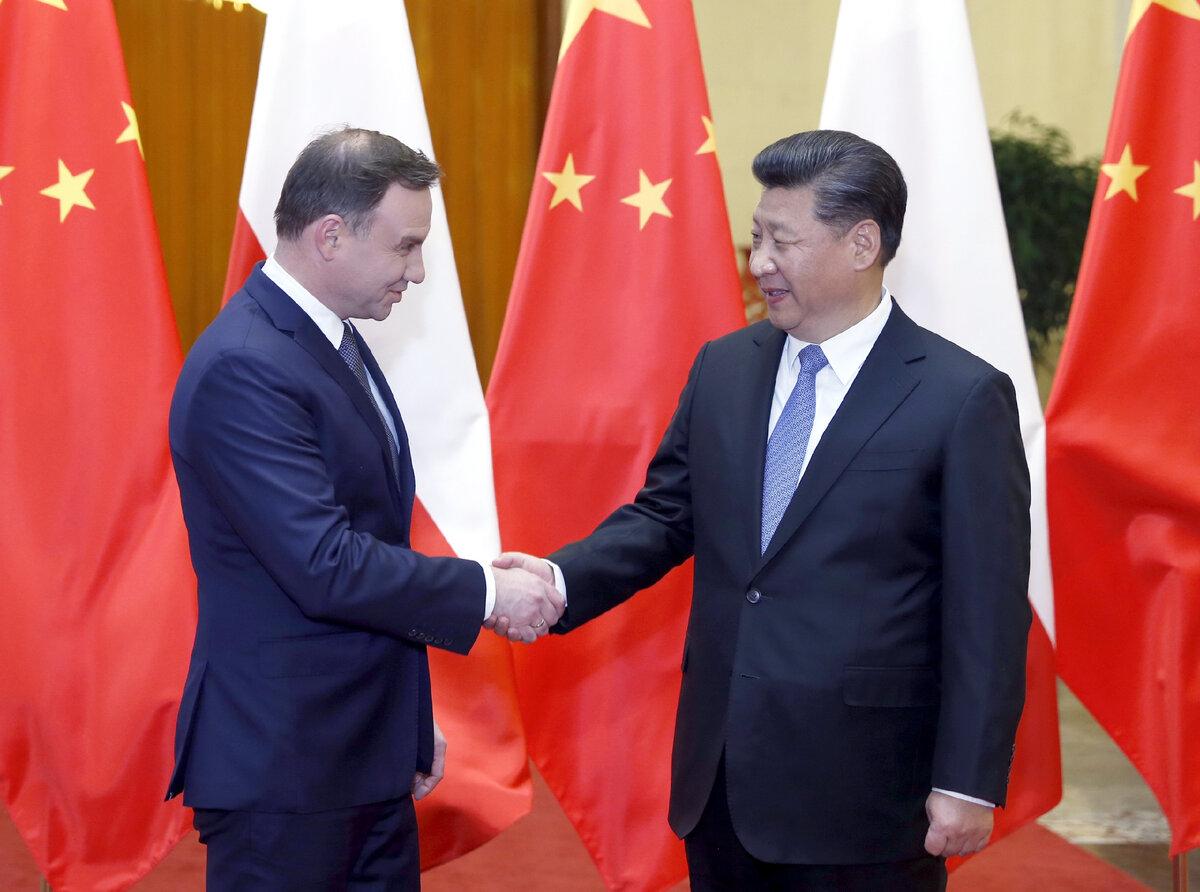Unexpected moments in China-Poland ties due to President Duda’s visit From Amber to Silk roads
There are so many unexpected moments due to the visit of Polish President Andrzej Duda to Beijing.
Indeed, everything is within the rules, but in reality, the matter rests in the relations between China and the EU, namely the sphere in which these relations will develop.
Initially, Chinese President Xi Jinping said that it is important for both countries to “draw wisdom and strength from their national history and cultural traditions” taking into account bilateral friendship.
The Chinese president noted that the sides must continue supporting each other’s efforts “to protect national sovereignty and security” resisting the “Cold War mentality and bloc confrontation” contributing to the creation of an “equal multipolar world”.
President Xi emphasised the cooperation in the China-Europe rail transportation within the “One Belt, One Road” initiative.
Proceeding from this information, the Chinese president tried to distinguish Warsaw from the EU member states, as if directing Poland to take the steps in some cases differing from the actions of the EU leading member states.
China even made a decision to introduce a 15-day visa-free regime for Polish citizens.
In turn, President Duda highlighted Beijing’s contribution “to global peace and development” appreciating the “One China” policy and the desire to strengthen cooperation within the “One Belt and One Road” initiative.
Of course, the special attention paid to “One China” policy is a significant moment as the presidents of the EU leading member states always speak about Taiwan.
Moreover, President Duda deviated from the general EU line in the direction of China, voicing Poland’s intention to provide a “non-discriminatory business environment for Chinese enterprises”.
Of course, this impressed President Xi, who revealed the importance of Poland for the world, noting its location at the “crossroads of Eurasia, at the intersection of the Amber and Silk Roads”. That’s, Beijing is ready to jointly unveil the potential of transport and communication opportunities.
While considering these nuances, several analysts expressed the opinion that Duda’s almost completely agreed with President Xi’s statement to “appease” the Chinese leader before conveying to him Brussels’ desire to support the pro-Ukrainian EU policy.
President Duda politely emphasised Beijing’s ability to “find a solution for peace in Ukraine on the principles of international law” and informed about President Xi’s response.
“I can say that we were listened to,” the Polish leader said.
President Duda added that Beijing’s officials skipped the recent peace summit in Switzerland which was caused by China’s “own international position”. He actually repeated the Chinese leader’s thesis.
Of course, few officials in the EU member states expected an immediate change of President Xi’s policy in the Ukrainian-Russian vector, at least at this historical stage.
Some observers noted that China’s adherence to its own policy forced President Duda to focus the Chinese leader’s attention on “the influence of Belarus and Russia on the security of onshore routes connecting China with Europe”.

Shortly before President Duda’s visit, Warsaw instructed to create a “buffer zone” in the border area with Belarus. All border crossings between the countries may be closed. The implementation of this step could stop the delivery of Chinese goods to the European continent.
The railway branch of the Silk Road, connecting China with Europe, passes through Belarus. Therefore, the possible closure of the Polish border with Minsk could affect the transportation of the Chinese products to the EU member states.
Several analysts considered President Duda’s warning about this step (for the future) to be a message from Brussels to Beijing about possible problems for the European line of the Silk Road.
How long will Warsaw insist on this issue, taking into account the considerable risks both for the country’s economy and the Polish-Chinese relations? Of course, Warsaw may be simply forced to take this step.
Polish expert Adrian Brona (Jagiellonian University) ruled out any pressure from President Xi on Belarus because China may export goods both through ships and railway via the South Caucasus and Türkiye.
The Polish analyst said that closing the borders between Minsk and Warsaw is not a favourable outcome for Beijing.
Thus, President Duda’s visit to China can not be considered as an ordinary visit.
The observers noted that the matter rests in Brussels’ attempts to agree with President Xi Jinping on weakening the China-Russia ties.
US Assistant Secretary of State for European and Eurasian Affairs James O'Brien said that today the Chinese authorities are faced with a choice to help Russia in its military actions against Ukraine or maintain important economic relations with European countries.
“It is clear that Beijing’s choice will take some time. Moreover, China, as some experts think, sees the effectiveness of sanctions against Chinese companies that do not curtail their activity in favour of Russia,” he added.
Let's wait and see. However, in any case, the relations between the EU and China are approaching a very difficult stage. Not only the actions of the sides in one sphere or another, but also the rhetoric of top officials may become important.
Azerbaijani political analyst Teymur Atayev’s article specially for Caliber.Az
The views and opinions expressed by the hired political analysts in their articles may differ from and do not always reflect the views of Caliber.Az.








